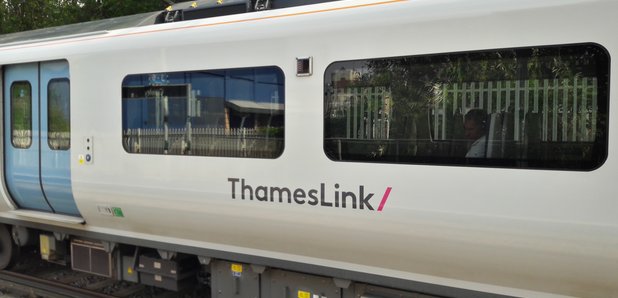Compensation decision reversed after rail meltdown
26 July 2019, 12:38 | Updated: 26 July 2019, 12:40

Govia Thameslink (GTR), which runs Thameslink, Great Northern and Southern trains say they have reversed their decision NOT to compensate season ticket holders who heeded their advice yesterday - not to travel during scorching temperatures.
GTR urged passengers to "avoid travelling wherever possible" on Thursday.
GTR now say passengers with an annual pass are entitled to a payout even if they did not attempt a journey on Thursday.
The firm initially said season ticket holders could only claim if they suffered a delay.
A spokesman for GTR said:
"In recognition of the severe disruption to rail services yesterday and today, we are offering compensation to season ticket holders who have decided not to travel.
We encourage season ticket holders who did not travel on the 25 or 26 July to apply via our website and select 120 minutes as their length of delay to ensure a full day of compensation."
GTR's decision brings it into line with several other operators also offering compensation to season ticket holders who did not travel on Thursday.
Anthony Smith, chief executive of independent watchdog Transport Focus, said:
"All passengers told not to travel due to extreme weather should be entitled to claim compensation.
Train operators should take the heat out of the situation and do the right thing by reimbursing passengers who have acted on their advice and made alternative plans.
When things go wrong train operators must ensure every eligible passenger knows about compensation and how to claim.
To make their voice heard passengers must claim every time and make delay pay."
Rail regulator the Office of Rail and Road said it is examining the National Rail Conditions of Travel to consider whether firms must offer compensation to season ticket holders when they advise passengers not to travel.
Services were crippled in large parts of England on Thursday as temperatures exceeding 38C (100.4F) damaged overhead wires and led to speed restrictions due to fears of tracks buckling





















